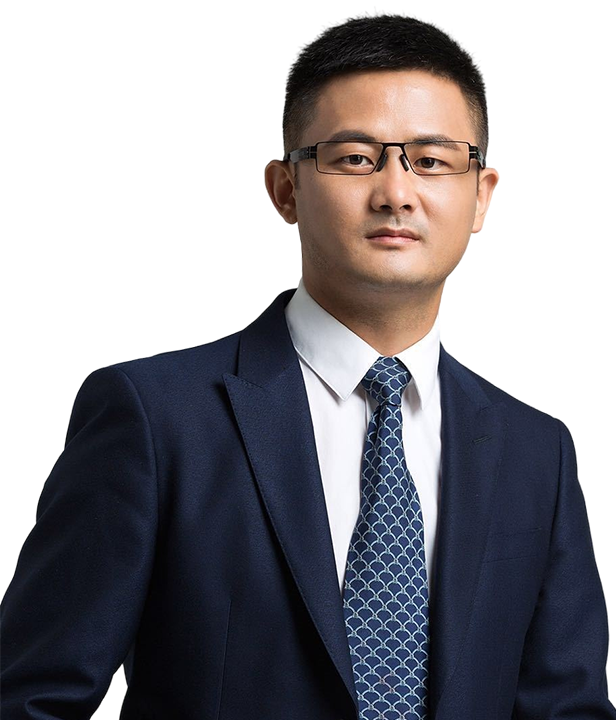©2024 Zhejiang Zhiben Law Firm. All rights reserved.Zhejiang
LABEL: Healthcare and Medicine , Dispute Resolution and Litigation ,
There are basically two forms of corruption in the medical field. One way is to receive rebates from suppliers through the purchase of equipment, prescription or usage of drugs and consumables. The second is to collect fees from pharmaceutical and medical device companies under the guise of academic activities, such as consultant fees, sponsorship fees, lecture fees, etc. Although the first type of corrupt behavior has been repeatedly banned, there is no controversy in the academic and practical circles regarding its recognition, and it has always been a focus of judicial crackdown. There has been a huge controversy over whether fees paid in the second form constitute corrupt practices and under what circumstances they should be punished by law. Since handling the first case of sponsoring doctors to attend academic conferences by the market supervision department (Administration for Industry and Commerce) in 2007, the author has been involved in handling numerous administrative law enforcement cases in which multinational and local medical enterprises were punished by the market supervision department for providing sponsorship fees, lecture fees, and consulting fees to doctors for attending academic conferences or activities in the past 20 years. Although many companies are dissatisfied, it is rare for them to initiate administrative litigation and go to court to argue and seek judicial conclusions on this issue. The administrative penalty decisions and judgments we can see have many simple discussions on the identification of these issues, making them difficult to serve as reference cases for similar cases.2023 is the peak year for anti-corruption in the medical field, and this issue has become particularly acute. Many doctors no longer accept invitations from medical companies to give lectures, and the lecture fees collected are either refunded to the medical companies or turned over to hospitals. The information issued by the medical regulatory authorities seems to have inconsistencies before and after, causing confusion for enterprises and industry associations in their implementation. It is heard that the market regulatory authorities are conducting extensive research and preparing to issue industry guidelines, hoping to regulate such interactions between medical enterprises and medical staff, but there is still no result. In 2014, the author provided defense services for the chairman of the board of directors in the GSK case. After the case was concluded, I specifically communicated with the leaders in charge of anti commercial bribery at the State Administration for Industry and Commerce about the industry and law enforcement status of anti commercial bribery. At that time, I asked when a guiding document could be issued to guide the industry to comply and avoid detours. The response I received at that time was that I was considering it. Ten years have passed, but such guidelines have not yet been issued.
1、 Existing laws, regulations, and latest developments
Article 7 of the Anti Unfair Competition Law and Article 88 of the Drug Administration Law provide principled provisions on what constitutes commercial bribery and the giving of property or other unfair benefits to the responsible persons of medical institutions, drug procurement personnel, physicians, pharmacists and other relevant personnel. The Provisional Regulations on Prohibiting Commercial Bribery, issued by the former State Administration for Industry and Commerce in November 1996, were the first to explicitly include such expenses in the scope of commercial bribery. Article 2 of the regulation stipulates that operators shall not violate Article 8 of the Anti Unfair Competition Law by using commercial bribery to sell or purchase goods.
The term 'commercial bribery' referred to in these regulations refers to the act of a business operator bribing another unit or individual with property or other means in order to sell or purchase goods.
The term 'property' referred to in the preceding paragraph refers to cash and tangible goods, including property paid by business operators to other units or individuals under the guise of promotion fees, publicity, sponsorship fees, scientific research fees, labor fees, consulting fees, commissions, etc., or through reimbursement of various expenses, for the purpose of selling or purchasing goods.
The term "other means" referred to in the second paragraph refers to means of providing various forms of tourism, inspections, and other benefits outside of monetary payments, both domestically and internationally.
This regulation prohibits the payment of fees and bribery in the corresponding name, but does not prohibit academic conferences or activities sponsored or supported by medical enterprises. The relevant industry rules also do not prohibit it. Therefore, in practice, when administrative law enforcement agencies investigate and deal with relevant cases, they focus on whether the relevant academic conferences or activities are genuine, whether they are accompanied by tourism and other activities, and other facts.
In December 2013, the former National Health and Family Planning Commission and the State Administration of Traditional Chinese Medicine issued the "Nine Prohibitions" to strengthen the construction of medical and health conduct. It is stipulated that medical staff are not allowed to accept social donations and subsidies in violation of regulations, and the financial support for donations must be managed by the financial department of the unit. It is strictly prohibited for internal departments and individuals of medical and health institutions to directly accept donations and subsidies. Since then, the situation of individual doctors receiving sponsorship from medical companies to attend academic conferences abroad has been fundamentally reversed. Medical companies can only indirectly sponsor doctors to attend academic conferences or give speeches at such conferences by choosing to sponsor various academic conferences organized by medical associations. Even so, there are still some corrupt practices that are difficult to detect or verify. In 2019, the Ministry of Finance conducted financial inspections and corresponding penetration inspections on 74 pharmaceutical companies, and in 2023, various levels of national audit departments conducted inspections and penetration inspections on public hospitals and medical associations, all of which found irregularities in the use of sponsorship fees. The "Nine Prohibitions" stipulate that medical workers are not allowed to participate in sales activities and illegally publish medical advertisements, which also blurs the boundary between whether doctors can involve product introductions in lectures.
After the promulgation of the "Nine Prohibitions", academic conferences organized by medical enterprises (mainly satellite conferences) and departmental meetings are still ongoing, and doctors are still accepting invitations to give relevant lectures and receiving lecture fees paid by the enterprises.
The anti-corruption campaign in the healthcare industry in 2023 has made the payment of lecture fees exceptionally sensitive. Relevant administrative authorities have issued numerous documents to vigorously combat corruption. For example, in May 2023, the National Health Commission and 14 other departments and bureaus issued a notice on the key points for correcting unhealthy practices in the field of pharmaceutical purchase and sales and medical services in 2023, emphasizing the need to rectify the problem of unhealthy practices in industry organizations, especially in the form of "donations", academic activities, holding or participating in conferences, providing a platform for illegal transfer of benefits, and accepting donations and funding in violation of regulations. In April of the same year, the State Administration for Market Regulation also launched a special law enforcement campaign against unfair competition in 2023, cracking down on illegal commercial bribery in key industries such as pharmaceutical procurement and sales. At the same time, disciplinary and supervisory departments have also issued strong signals to combat corruption. The audit department has also begun to enter public hospitals to audit the use of funds. Doctors have refused to serve as speakers at academic conferences and accept lecture fees. The already collected lecture fees are requested to be refunded or turned over to the unit. The medical field has become an extremely sensitive topic regarding the hosting of academic conferences or the payment of lecture fees, which has caused a stir. The list of nearly 180 hospital leaders investigated and punished by the media has made the situation even more complex and severe. At this time, leaders of relevant departments of the National Health Commission delivered a speech at the China Hospital Directors Forum in September 2023, stating that "we must strike a balance in conducting self-examination and self correction, not confuse it with the normal income of medical personnel, not arbitrarily undermine the enthusiasm of medical personnel to participate in regular academic conferences, and not arbitrarily expand the scope of centralized rectification work." The intention is to stabilize public opinion and prevent overcorrection.
However, the notice issued by the Medical Department of Jianping County Hospital, which began circulating online in January 2023, in accordance with the National Health Office's Medical Urgent Letter [2023] No. 469 "Notice on Issuing Work Tips for Academic Lectures and Remuneration of Medical Personnel" [1], shows that medical enterprises seem to be excluded from the main body that can legally invite doctors to teach and pay lecture fees. This also makes it more difficult and confusing for medical companies to organize medical conferences and invite doctors to give lectures.
However, according to the "Notice on Issuing the Key Points for Correcting Unhealthy Practices in the Field of Pharmaceutical Purchase and Sale and Medical Services in 2024" issued by the National Health Commission and 14 other ministries and agencies in May 2024, the competent authorities are required to prohibit "platform style lectures" and "table style meetings", which are unfair competition behaviors that involve bribery under the guise of academic conferences, rather than academic conferences with academic dissemination and educational significance.
2、 The nature of medical enterprises paying for academic conference expenses
The anti-corruption efforts in the medical field are not only for the sake of maintaining a clean and upright industry, but also for the country to pay more attention to the fact that corrupt funds have pushed up the cost of medicine and medical equipment, ultimately evolving into the medical costs of ordinary people. This has been seriously mentioned in the GSK case and many subsequent government documents. However, the medical industry is also a special industry, and the quality, knowledge level, and ability of medical workers are related to health and life. The knowledge and experience of medical workers cannot be achieved overnight or in one go at the higher education stage. Instead, they need to continuously receive continuing education and training in order to master the use of various new drugs and equipment, as well as learn new treatment methods and adapt to new technological developments. This requires doctors to always be in the process of learning and constantly interact with colleagues in the industry. This is not only for the personal progress of doctors, but also the key to the continuous progress of the entire medical industry, learning from international peers, and narrowing the gap with advanced treatment technologies.
Although continuing education for healthcare workers is so important, relying solely on state funding is clearly not enough to achieve such a goal. According to the latest "2022 Statistical Bulletin on the Development of China's Health Care Industry" released by the National Health Commission on October 12, 2023, there are a total of 11746 public hospitals in China, with 4.435 million practicing (assistant) physicians and 3.722 million practicing physicians. Practicing (assistant) physicians refer to individuals who have obtained a physician practice certificate and are actually engaged in clinical work, excluding individuals who have obtained a physician practice certificate but are actually engaged in management work. These numbers do not include the number of people holding the position of nurse. The financial data of training expenses for public hospitals in 2023 and earlier years are disclosed on the official website of the National Health Commission in their annual budget reports. The budget allocated for "further education and training" in 2023 is 9.74 million yuan, of which 2.8 million yuan is used for cadre education and the remaining 6.94 million yuan is used for other training.
According to the "2020 Cadre Education and Training Plan for Directly Affiliated and Associated Units of the National Health Commission" issued by the National Health Commission, cadre education is basically unrelated to academic education for medical staff. Assuming that a portion of the budget for other training mentioned above is used for the training of medical staff, the "other continuing education and training expenses" allocated by public hospitals under the jurisdiction of the Health and Family Planning Commission since 2014 are as follows. The annual expenses for this category since 2014 have been 13.2 million (2014), 13.2 million (2015), 27.0665 million (2016), 28.7225 million (2017), 22.9975 million (2018), 20.7776 million (2019), 21.2198 million (2020), 25.2781 million (2021), and 6.38 million (2022). Please refer to the attached table for the corresponding number of public hospitals and practicing physicians. Overall, the number of public hospitals has been decreasing year by year, while the number of physicians has been increasing year by year.
According to the information I have gathered from practicing physicians, "In the early years, travel and conference expenses were reimbursed by hospitals, and each person was allowed to be reimbursed once a year. After the implementation of the eight regulations, companies no longer reported and were instead sponsored by pharmaceutical companies. Since the anti-corruption campaign in the medical industry, medical companies are no longer allowed to sponsor. If academic event organizers invite lectures, the medical association will pay for them. Others will solve the problem themselves." Some doctors have not even heard of companies using public funds to support training, unless it is for studying abroad, but it is also rare. Although the author did not receive a unified answer, the basic situation is that medical workers have very few opportunities to use unit funds to participate in training, which means there is a huge gap between the support of national funds and the need for doctors to continuously learn and train. It cannot be denied that the current gap is mostly filled by funds from pharmaceutical companies.
We must acknowledge that whether medical companies sponsor doctors to attend academic conferences or pay for their lectures, these actions are not of a public welfare nature and do not constitute charitable donations. Medical companies do not obscure the term 'academic promotion', in fact, the payment of such funds is also a part of their business operations. Since it is a part of business operations, any behavior that may involve product introductions during academic activities should not be too strict or even prohibited. The regulation of medical academic conferences should be considered and standardized from this perspective.
Medical academic conferences can be roughly divided into several categories: specialized academic conferences hosted by various medical associations and their branches, hospital self organized conferences, enterprise self organized conferences (satellite conferences and non satellite conferences), and departmental conferences (departmental conferences for medical workers from the same department and departmental conferences or in-hospital conferences for medical workers from different departments or even branches). The specialized academic conferences hosted by medical associations and their branches are mostly held after receiving sponsorship funds from enterprises. Although such sponsorship funds are still used unreasonably or even in violation of regulations, overall, administrative law enforcement departments pay less attention to the legality and compliance of such conferences and the use of funds. Academic conferences on special topics organized by a leading hospital are usually held with sponsorship funds from enterprises, but such conferences are now relatively rare compared to other types of conferences. Administrative law enforcement departments pay more attention to enterprise self organized meetings and departmental meetings. Regarding the departmental meeting, the administrative law enforcement department has basically adopted a completely negative attitude. The supervisory department generally believes that it is the responsibility of senior doctors to train and educate young doctors in the same department through departmental meetings, and that no fees should be charged. Secondly, it is inappropriate for medical companies to train doctors in hospitals and pay for their lectures under the name of department meetings during their working hours. The main focus for self organized meetings by enterprises is whether to use the name of the meeting to organize travel for attendees, whether to give valuable gifts, and whether the payment of lecture fees is compliant. Based on the cases undertaken by the author and several recent cases disclosed online regarding lecture fees, it can be noted that the key points of concern for administrative law enforcement departments regarding lecture fees are whether the lectures are truly conducted, whether the lectures have been approved by the speaker's unit, whether the lectures involve the introduction of enterprise products, whether they involve inappropriate comparisons of products from different units, whether the courseware is provided by the enterprise, whether the lecture doctors have used the drugs or equipment paid by the lecture fee payers, whether the conference venue is appropriate, and whether it truly achieves the meaning and value of academic promotion. The author believes that besides whether the lecture has actually occurred being an important factor in determining the legality of lecture fee payment, it is worth discussing whether other situations can constitute the basis for administrative law enforcement department's punishment.
To determine the legality of the payment of lecture fees, it is necessary to first acknowledge that the enterprise's hosting of academic conferences or inviting doctors to give lectures and pay lecture fees cannot be defined as a public welfare activity, but rather as a business activity of the enterprise. This is similar to the nature of the enterprise sponsoring academic conferences hosted by medical associations with funds. Because it is a business activity of the enterprise, the enterprise must have its own business motives and logic when organizing these activities. Forcing academic conferences held by enterprises to have no relation to products is not in line with these commercial motivations and logic, nor can it meet the needs of medical workers to use enterprise funds to complete continuing education. As we analyzed earlier, the continuing education of healthcare workers mainly relies on funding from enterprises rather than the government. In the future, it is impossible to rely solely on national funds to complete these essential continuing education programs. Forcibly using administrative orders, means, or seemingly ambiguous administrative penalties to deter companies from similar business practices will not be beneficial for the healthy development of the healthcare industry.
3、 What should we do in the future
Department meetings are still the main way and method for academic knowledge dissemination between medical enterprises and healthcare workers. Many internal compliance policies of medical companies have detailed regulations on how to hold departmental meetings, in-hospital meetings, or other academic conferences. The compliance policy for departmental meetings roughly includes these contents. Academic education for medical workers from the same department cannot be paid for lecture fees. For academic exchange meetings (sometimes referred to as in-hospital meetings) for medical workers from different departments or branches of the same hospital, lecture fees can be paid to the speakers. Some policies differentiate between doctors from our hospital and doctors from other hospitals for speakers. If you are a doctor in this hospital, you cannot pay for the lecture fee. However, not all healthcare companies have the same restrictions. There are sometimes minimum limits on the number of speakers and participants, and even for the number of people from other departments. The number of people required for online and offline meetings may also vary. Some companies also conduct flight inspections on departmental meetings. There are also different regulations on whether courseware can be provided by enterprises. It is said that the guidelines for academic conferences being drafted by the regulatory authorities also consider whether there should be regulations for departmental meetings.
The supervisory department's understanding of the nature of departmental meetings is not unreasonable. The author believes that given that departmental meetings (or in-hospital meetings) are held within the hospital and may even occupy the working time of medical staff, which involves the management order of the hospital, strict regulation should be implemented. Firstly, it should be encouraged for pharmaceutical representatives from enterprises to give lectures to doctors, explaining the use of drugs and equipment, and disseminating knowledge in relevant medical fields. In the anti-corruption process of the medical industry in 2023, one of the author's clients changed the practice of inviting doctors to give lectures in the department and paying the lecture fees to pharmaceutical representatives, and the annual sales amount did not decrease or significantly change. According to the "Administrative Measures for the Filing of Pharmaceutical Representatives (Trial)" issued by the State Administration for Market Regulation in September 2020, pharmaceutical representatives themselves have the ability to transmit information related to pharmaceutical products to medical personnel; Assist medical personnel in using our company's pharmaceutical products reasonably; Collect and provide feedback on the clinical use of drugs and hospital demand information. Article 3 of the Measures further stipulates that pharmaceutical representatives may carry out academic promotion and other activities through the following forms: (1) communicating with medical and pharmaceutical personnel in person at medical institutions; (2) Organize academic conferences and lectures; (3) Provide academic materials; (4) Communicate via the Internet or teleconference; (5) Other forms agreed upon by medical institutions. This indicates that disseminating medical knowledge is the main responsibility of pharmaceutical representatives. If the medical representative determines the date of the department meeting after consultation with the department head and invites doctors to attend, such department meetings should not be prohibited.
If a company holds cross departmental or branch departmental or intra hospital meetings within a hospital, it should obtain the hospital's consent. Hospitals and enterprises can negotiate whether to apply each time or to set the frequency and method of inter departmental or intra hospital meetings that medical enterprises can hold within the hospital each year. Regulations should also be made on whether to pay for the teaching fees of medical workers. However, cross departmental and intra hospital meetings held without hospital approval and payment of lecture fees cannot be arbitrarily recognized as commercial bribery, as the recognition of commercial bribery has its own legal principles. For example, complete "platform style lectures," "table style meetings," or meetings that are not authentic, etc., the payment of such lecture fees is suspected of using lectures as a pretext and actual bribery.
Enterprises hosting academic conferences and inviting doctors to attend or give lectures at academic conferences do not require the consent of hospitals as a prerequisite. As for whether doctors need to obtain the hospital's consent to attend meetings or receive remuneration for lectures, that is an internal regulation of the hospital. There is no causal relationship between violating such internal norms and whether it constitutes commercial bribery, and it cannot be equated with the legal principles of determining whether it constitutes commercial bribery. In principle, a doctor's courseware should be prepared by the doctor, which not only reflects the doctor's labor achievements and work time, but also represents their medical professional ability and academic level. Because medical lectures involve a lot of professional knowledge and ethical requirements, conference organizers have the right and even the obligation to review the courseware to ensure that the content of the conference they hold does not violate academic norms and legal requirements in the medical field.
It is inevitable to introduce corporate products in academic lectures given by doctors. Organizing academic events by enterprises has its own commercial motives and logic. It is unrealistic and unnecessary to require such academic conferences to have pure and pure academic content that does not involve any products. As practitioners, only a small portion of doctors have research tasks that require innovation and development in higher-level medical principles, research and development knowledge, medical methods, etc. The vast majority of practical knowledge requires obtaining more information on the specific use of drugs, equipment, and consumables, which is almost impossible without involving products. Manufacturers also have the impulse and desire to introduce and promote the characteristics and advantages of their own products. It is also necessary for doctors to introduce the precautions that should be taken during the use of these products based on their own experience. To deny the legality of the entire teaching behavior and payment of teaching fees when it comes to products in the courseware is indeed disregarding industry characteristics and basic legal principles.
As for the issues of not being able to hold academic conferences in scenic spots, not being extravagant in hospitality, not giving valuable gifts, not organizing tourism during the conference process, and paying appropriate lecture fees according to the level of the speaker, the industry has long reached a consensus, and most companies have regulations in their internal rules and regulations, as well as guidelines from industry associations.
There are many valuable references in the practice of regulating the granting of any benefits to doctors in the United States. The Physician Payment Sunshine Act in the United States requires companies to transfer payments and other value exceeding $10 to doctors and teaching hospitals on the Open Payments website( https://www.cms.gov/priorities/key-initiatives/open-payments )Register. The Centers for Medicare and Medicaid Services (CMS) is the agency within the Department of Health and Human Services (HHS) that manages the major healthcare programs in the United States. Its official website( https://www.cms.gov/priorities/key-initiatives/open-payments/natures )The payment types that need to be reported on the Open Payments website were explained, mentioning "compensation for non consulting services (such as serving as faculty/speakers in activities outside of continuing education programs)," "compensation for serving as faculty/speakers in medical education programs," "compensation," and "travel and accommodation.
The Anti Kickback Statute in the United States stipulates that knowingly soliciting, accepting, providing, or paying rewards to induce or reward the recommendation of reimbursable items or services for federal healthcare programs is a criminal offense. The Special Fraud Alert issued by the Office of the Inspector General (OIG) of the US Department of Health and Human Services outlines a non exhaustive list of activities considered suspicious, prohibiting businesses from paying medical staff lecture fees or remuneration in the following situations:
(1) The speech actually provides little or no substantive information;
(2) Provide expensive meals and drinks for participants;
(3) The event is held in popular locations that are not conducive to educational information exchange, such as breweries, sports venues, expensive restaurants, golf clubs, and adult entertainment facilities;
(4) Introduce the same or essentially the same topic or product information to the same or repeated attendees in different speech programs sponsored by the company;
(5) Attendees include individuals who attend the conference without legitimate business reasons, such as speakers or family and friends of attendees; The speaker's employees or medical staff; And other individuals who are not useful for information;
(6) Select participants based on their historical income or potential expected income (e.g. conducting investment return analysis when determining participants);
(7) Determine the speaker and their remuneration based on the value or quantity of past or future business generated.
In addition to the AMA Code of Medical Ethics, industry associations in the United States also provide guidance on similar issues, such as the PhRMA Code on Interactions With Health Care Professionals and the AdvaMed Code of Ethics. Many state laws in the United States also have similar regulations.
This three-dimensional regulatory network not only allows the income of medical workers to be exposed, but also largely prevents corruption from occurring. Relying on sports style anti-corruption and unclear administrative penalty decisions by law enforcement departments cannot fundamentally prevent corrupt behavior in the medical industry, and it also makes doctors tremble when receiving continuing education supported by enterprises, and feel ashamed or unwilling to accept legal labor remuneration. These do not have a positive impact on the continuing education of healthcare workers and the provision of academic standards in the medical industry. The administrative department should objectively recognize the nature of enterprises using their own funds to support the continuing education of medical workers, affirm its necessity, encourage its enthusiasm for supporting the continuing education of medical workers, and make appropriate regulations. It is necessary to not only combat corruption and prevent corruption, but also to promote the healthy development of continuing education for medical workers.
Appendix





